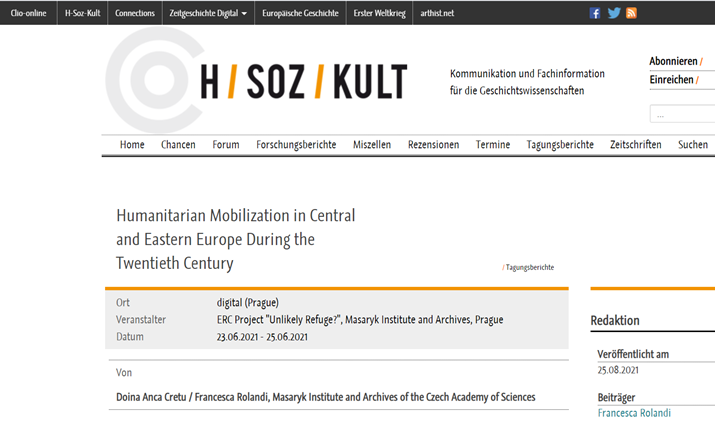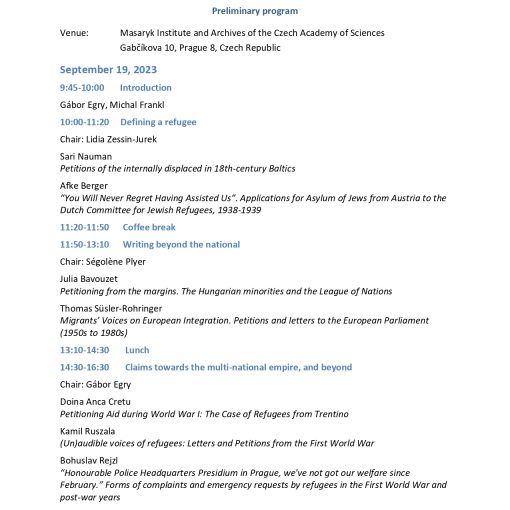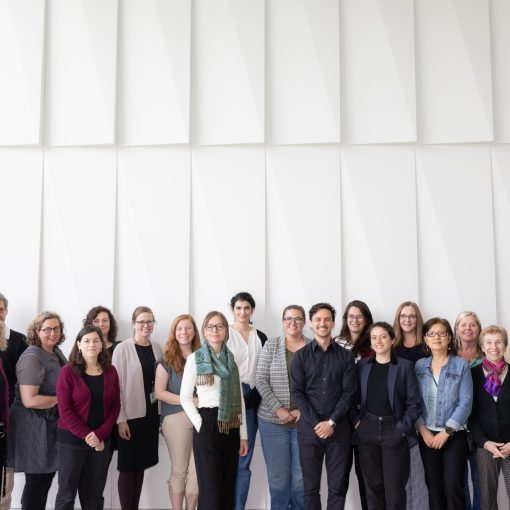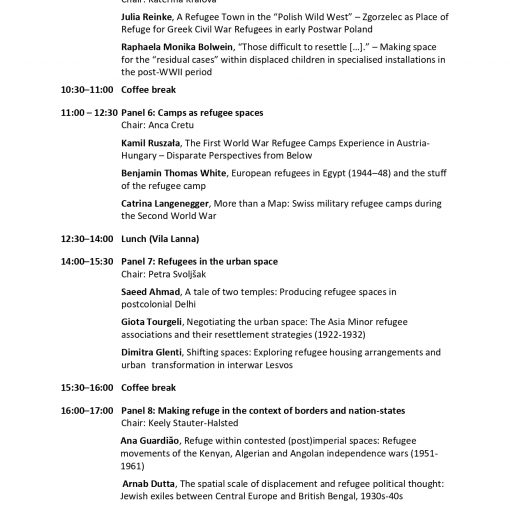By Doina Anca Cretu / Francesca Rolandi, Masaryk Institute and Archives of the Czech Academy of Sciences
Scholarship has increasingly dealt with Central and Eastern Europe as a space of local, national, and transnational humanitarian mobilization in response to the human costs of abrupt political ruptures. In this context, the workshop organized by the framework of the European Research Council (ERC) Consolidator Grant ‘Unlikely refuge? Refugees and Citizens in East-Central Europe in the Twentieth Century,’ aimed to explore new themes and analytical angles that reflect on various dimensions of humanitarian mobilization in this region. First, it explored the organization and transfer of internationally driven relief. Second, it investigated the reception of foreign aid carried by various workers, institutions, and related networks. Lastly, it looked at local and national humanitarian practices elaborated in the region in response to the challenges posed by processes of nation-building and state-making in the interwar period, by the establishment of communist regimes, or by the post-1989 transition. The workshop thus had eight panels that followed these general themes. (…)
Please continue reading at H/Soz/Kult




